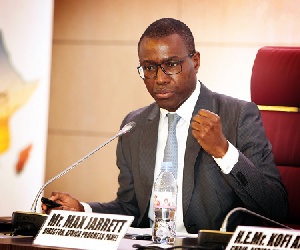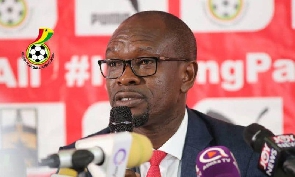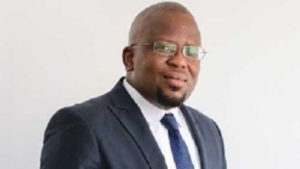The African Development Bank (AfDB) has made green energy supply a major priority to drive Africa’s economic growth.
Mr. Amadou Hott, the Bank’s Vice President (Power, Energy, Climate Change and Green Growth) said it was upping its investment in green and cleaner energy sources to increase production of goods and services in the continent.
It had targeted to finance the installation of a total of 8,800 megawatts of power over a period of a nine-year period.
Energy was crucial to guarantee the quality of services, reduce cost of doing business and unlock economic potentials.
Mr. Hott was speaking to journalists at the AfDB’s headquarters in Abidjan as it readied for its upcoming annual meeting in the industrial megacity of Busan, South Korea.
It had taken a three-pronged approach to increase electricity generation capacity - on-grid, off-grid and mini-grids, with the goal of achieving universal access to electricity by 2025.
In Ghana, it was providing financing and technical advice on some projects.
Additionally, the bank had initiated action to increase mini grids through the Climate Investment Funds (CIF) Scaling up Renewable Energy Programme (SREP) and the Ghana Investment Plan “Renewable Mini and Stand-Alone Systems” projects.
This, Mr. Hott said these involved financing market studies for the construction of 55 renewable energy-based mini grids and 35,250 stand-alone photovoltaic (PV) electrification systems installed in 500 rural communities.
Although Ghana was one of the nations with highest electrification rates in sub-Saharan Africa, roughly two million people were still living in rural and or isolated areas, where the national grid was unlikely to reach within the next 10 years.
The AfDB Vice President stated that it was eager to see improvement in energy efficiency and conservation along the energy value chain to reduce losses -production, transmission, distribution, and end-use inefficiencies.
Business News of Wednesday, 9 May 2018
Source: ghananewsagency.org













